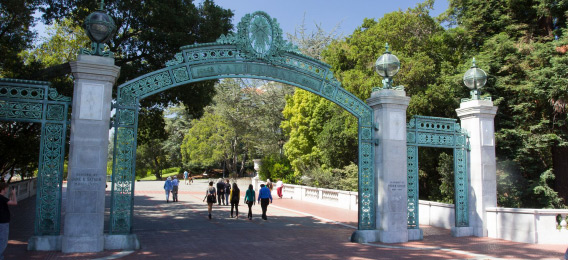The Lighthouse® is the weekly email newsletter of the Independent Institute.
Subscribe now, or browse Back Issues.
Volume 20, Issue 39: September 26, 2018
- Love Gov Comedy Series Hits YouTube
- Powerful Banks Take Aim at Lawful Gun Trade and Advocacy
- California Should Avoid Getting Caught in Net Neutrality
- Sexual Assault on Campus: Advice for Parents
- The Beacon: New Blog Posts

Hold on to your wallets, break out the popcorn, and prepare to laugh and sigh with an engaging new video series about government paternalism run amuck! The Independent Institute has just released Season 2 of its satirical video franchise, Love Gov. Like its smash-hit first season, Love Gov 2: A Crisis Not to Waste revolves around the overbearing antics of Scott “Gov” Govinsky and the harmful consequences of his unsolicited “help” for the people around him.
In five short (under 10 minutes) episodes, the new release tells the story of three young adults—Rebekah, Sam, and Katie—who rent rooms in Gov’s house as they struggle with housing costs, inadequate health insurance, joblessness, and (spoiler alert) privacy violations as Gov stealthily tracks their every move. Will the roomies discover the full extent of Gov’s creepiness and somehow break free of his seemingly inescapable lease agreement? Tune in and find out!
Since its 2015 release, Love Gov: From First Date to Mandate has racked up over 7.4 million combined YouTube views plus 10 film-festival awards and 18 laurels. Will Love Gov2: A Crisis Not to Waste match the success of its predecessor? If so, credit will be due to the strong partnership forged between the Independent Institute and Austin-based creative agency Emergent Order. Also, as storytellers since Jonathan Swift have known, government folly is the gift to satirists that just keeps on giving!
Season 2 – Love Gov 2: A Crisis Not to Waste
Season 1 – Love Gov: From First Date to Mandate

At the direction of Governor Andrew Cuomo, New York’s Department of Financial Services has issued banks a stern warning: Dealing with the gun trade—and even gun-rights advocacy groups—may land you in legal hot water, including hefty penalties. With so much money at stake, major banks have caved to the pressure, though at least two institutions have stood their ground and been hit with fines in the millions of dollars. Others, such as Citibank and Bank of America, have jumped on the anti-gun bandwagon and driven it further, placing even more stringent restrictions on firearm-related bank transactions, explains Independent Institute Research Fellow Stephen P. Halbrook.
“Frustrated that democratically elected legislatures have rejected the demands of their favored interest groups, certain banks have decreed they will no longer do business with firearm manufacturers and dealers or allow others to do so,” Halbrook writes in an op-ed published in the New York Daily News, Los Angeles Times, Chicago Tribune, Sacramento Bee, and elsewhere.
Some institutions have resisted the anti-gun zeitgeist, however. Wells Fargo Bank, Halbrook writes, “announced it would not get involved in political posturing and would do business with lawful companies.” Regarding New York’s penalties for banks that defy the state’s new edicts, he writes: “The ACLU filed a friend-of-the-court brief arguing that Cuomo’s policies ‘would set a dangerous precedent for advocacy groups across the political spectrum.’” Expect to hear more about this issue.
Some of the World’s Most Powerful Banks Push Policies Circumventing Constitution and Federal Laws, by Stephen P. Halbrook (The Los Angeles Times, 9/13/18)
Gun Control in Nazi-Occupied France: Tyranny and Resistance, by Stephen P. Halbrook

Will California enact new restrictions that constrain the terms and pricing that internet service providers (ISPs) can set for broadband services? Governor Jerry Brown has until the end of September to sign the nation’s most stringent net neutrality bill, SB 822. If he does, it will be a brazen challenge to current federal policy and likely set off a litigation war that will enrich government lawyers at the expense of state and federal taxpayers. For the sake of innovation and choice, it’s crucial that Brown veto the bill, argues Independent Institute Research Fellow Adam B. Summers.
In practice, net neutrality is almost a non-issue—at least so far. “Incidents violating net neutrality principles have been pretty rare, and generally have occurred as ISPs sought to manage network congestion, as increased video streaming, online gaming, and other bandwidth-intensive activities stress bandwidth capacity to the point that it degrades services for other users,” Summers writes in an op-ed published in the Orange County Register and numerous other Southern California news outlets. In principle, however, the net-neutrality debate involves basic constitutional liberties.
“Having the government dictate pricing policies and other business practices would violate the right of contract, property rights and perhaps the Takings Clause of the Fifth Amendment—hardly the ‘free and open internet’ mantra that net neutrality proponents claim,” Summers explains. Given the fundamentality of what’s at stake, the only proper way to advocate changes in ISP business practices is through persuasion and economic competition. “We would do much better to place our trust in the pressures put on providers by their millions of customers and numerous competitors eager to steal their market share by better serving customers than in a handful of politicians and bureaucrats in Washington, D.C., or Sacramento,” Summers concludes.
Government Is Not So Neutral on Net Neutrality, by Adam B. Summers (The Orange County Register, 9/12/18)

The Department of Justice apparently has plans to create a Title IX sex offender database, a development rife with problems of inadequate due process for the accused, according to Independent Institute Research Fellow Wendy McElroy, in an op-ed for the Daily Caller. Nevertheless, headlines about sexual assault and American campus life have many parents justifiably worried. Independent Institute Research Fellow Samuel R. Staley offers them advice in a recent op-ed published at Inside Sources and elsewhere.
Parents should be on notice: Extracurricular campus life may be more extreme today than they remember it from their own college years. Two great resources for becoming informed are American Hook-Up: The New Culture of Sex on Campus, by sociologist Lisa Wade, and We Believe You: Survivors of Campus Sexual Assault Speak Out, by two assault survivors, Annie E. Clark and Andrea L. Pino. The books offer a variety of illuminating perspectives about the problem and its consequences for young people and their parents. Staley also offers his own book on the topic, Unsafe On Any Campus? College Sexual Assault and What We Can Do About It, which explains why, in Staley’s words, “a pro-active and comprehensive approach to addressing the problem is crucial.”
“The first step for parents to help their children navigate the dark side of modern college life is to become better informed,” Staley writes. “The second step is to show unqualified compassion and empathy. The third step is to help guide our children onto a path toward healing and recovery. Together these steps can build emotional connection and offer buoyancy to young lives otherwise at significant risk of being lost at sea.”
The DOJ’s Potential Plans to Create Title IX Sex Offender Database, by Wendy McElroy (The Daily Caller, 8/28/18)
For Parents Only—the Dark Side of College and the Path Toward Healing, by Samuel R. Staley (Inside Sources, 9/7/18)
- The Growth of Discretionary and Mandatory Spending, by Craig Eyermann
- Do Food Stamps Reduce Corporate Labor Costs?, by Robert Murphy
- Ten Years after Lehman—Will It Happen Again?, by Alvaro Vargas Llosa
- Real Women Don’t Want the Government to Get Them in the Boardroom, by Mary Theroux
- The Last Refuge of Payment in Kind, by K. Lloyd Billingsley
- Gratitude in an Unfree World, by Robert Higgs






